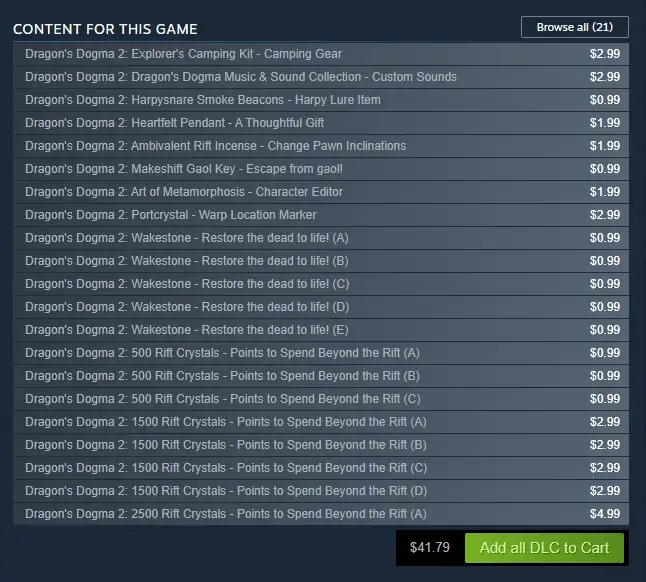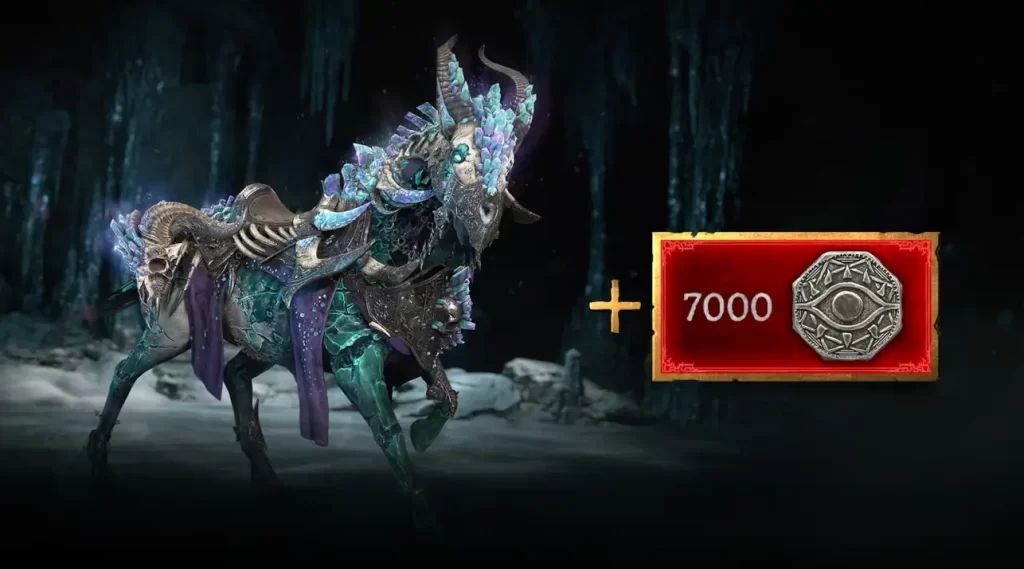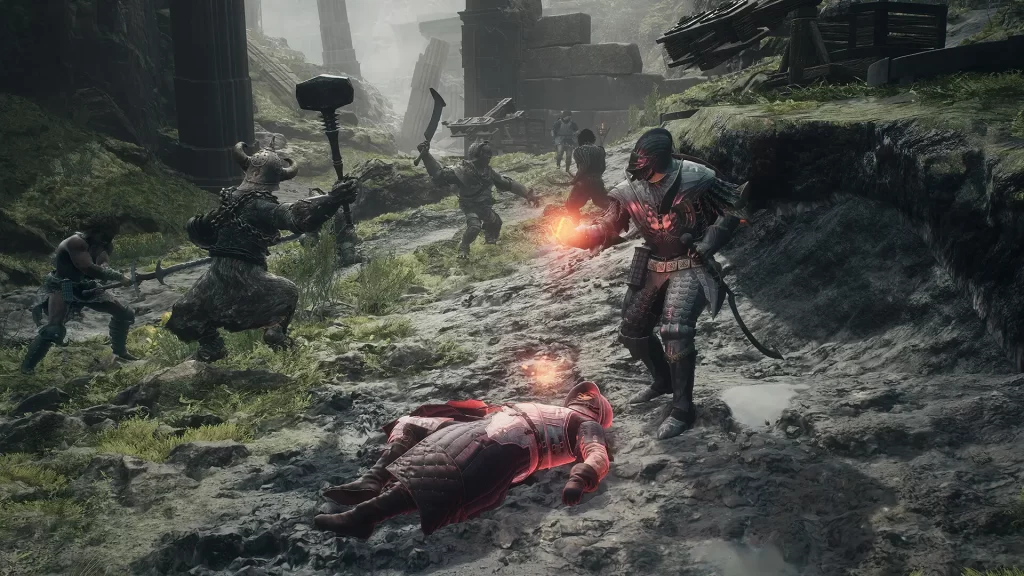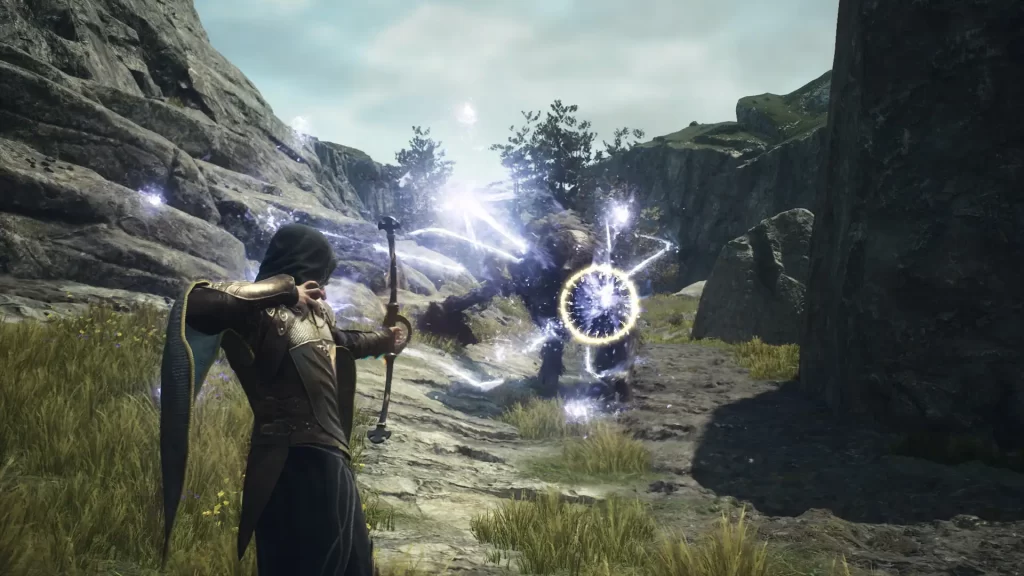Monetizing video games is no easy task when a developer goes beyond the entry cost of simply purchasing a game. With unsustainable budgets plaguing the industry, it makes you wonder if certain attempts are to survive or out of greed. Especially when they’re popular games like the newly released Dragon’s Dogma 2.
If you’re lucky, you may only have to spend $69.99 to purchase it. Whereas if you’re unlucky, you could be spending the equivalent of $83.48 in Costa Rica. Regional pricing is a whole different topic, but I’m here to focus on microtransactions specifically. Once you get past that entry cost, microtransactions can make an already expensive game even farther out of reach.
Before I dive into discussing the Dragon’s Dogma 2 microtransactions, I want to preface this by saying I don’t own the game. I’d love to verify how it works first-hand and feel it out organically, but I’m unable to. Therefore, I’m going to speak more generally on the topic and discuss what I’ve read surrounding the game.

The Explorer’s Camping Kit, Custom Sounds, and Heartfelt Pendant aren’t available with in-game currency.
With that out of the way, Dragon’s Dogma 2 currently has a “mixed” review score on Steam where 44 percent of reviews are positive. This has improved from the slightly lower “mostly negative” review score it previously had. A quick look shows negative reviews that mention microtransactions, poor performance, Denuvo, and other miscellaneous problems.
This shows that while microtransactions may be a big source of the negative reviews, they’re not the only issue disappointing players. However, the real question is whether the microtransactions that do exist need to or not. Adding to the confusion is that many people don’t realize you can get most of these items without spending real money.
What irks me about certain microtransactions is how they can still impact your experience. I wrote about this in 2018 and I’m sure I’ll write about it again years from now. This is a recurring conversation when controversial microtransactions come out. Not that long ago we were discussing the $64.99 Diablo 4 horse bundle.
As I mentioned in my 2018 article, the issue with microtransactions that go beyond cosmetics is how the developer incentivizes you to buy them. Many MMORPGs have had a way to spend money to get an experience boost. This could help players with less time to game if they had the money to spend. However, a big issue is if a developer reduces the overall grind and uses that boost to get you to the normal gain rates.
My main concern in Dragon’s Dogma 2 revolves around getting Rift Crystals and allegedly rare items you can spend real money on. According to Polygon, Wakestones that you can use to revive in combat or revive NPCs are rare to get.
The Steam DLC section shows that you can purchase five Wakestones at $0.99 each. Which doesn’t sound that bad in theory, but again, do they really need to exist as microtransactions? Does this give an advantage that can throw off the flow of the game? Or even more concerning, is this a way of charging money to make the game easier instead of having difficulty options?
Then there are more bizarre decisions like charging for the Art of Metamorphosis which lets you change your character’s appearance. This sounds like the sort of garbage I’d see in an MMO or live service game, not a single-player one. From what I’ve seen online, you can purchase these with Rift Crystals and maybe find them too. I’d love for you to be able to customize your character for free regardless.
It’s just wild to nickel and dime players for a minor feature like this in a single-player game. I’d still dislike it in a live service one, but at least in those games they usually rely on monetization like that. Such as skins or outfits for real money often alongside free ones too. That then leads to the continued development of said game.
In the case of Dragon’s Dogma 2, what are the future plans for it? Will this money contribute to new content later on? It’s not like Apex Legends or Fortnite where they go through seasons. And to be fair, the microtransactions for Dragon’s Dogma 2 are nowhere near the costs of other live service games. So I’m not actually suggesting it’ll fund new content.
But I’m sure many of us would prefer to pay for an expansion over microtransactions. However, I’m not an expert on the business side of the game industry. Obviously, it’s not simple and I’m sure getting extra money via microtransactions is a heck of a lot easier than developing an expansion.
As someone who has played plenty of free to play games without spending money, I understand the perspective that you don’t need to. But you can argue that it’s taking advantage of people who may feel they do. This feels like an industry shifting the growing costs of a struggling business model and possibly failing one to the consumers.
Just take a moment to think about any single-player game and how you’d feel about optional microtransactions in them. What if you could buy gold in Baldur’s Gate 3 with real money or an item to change your character’s appearance? If it’s optional and you don’t need it, is it okay?
It makes you wonder when Dragon’s Dogma 2 is currently the 4th most-played game on Steam as well as the number 1 top seller. Does Capcom need those microtransactions to consider Dragon’s Dogma 2 a commercial success?
One thing that I find interesting is that the previous game also had Rift Crystals you could purchase with real money. I haven’t played the original so I can’t say how it works now. But, I’ve read that the Dark Arisen re-release removed the ability to purchase these with real money. Is this where Dragon’s Dogma 2 will end up? And if so, were the microtransactions necessary in the first place?

Jeff is a journalist with over 10 years of experience writing, streaming, and making content about video games. With an associate degree in journalism, he’s a sucker for RPGs, survival games, roguelikes, and more.





